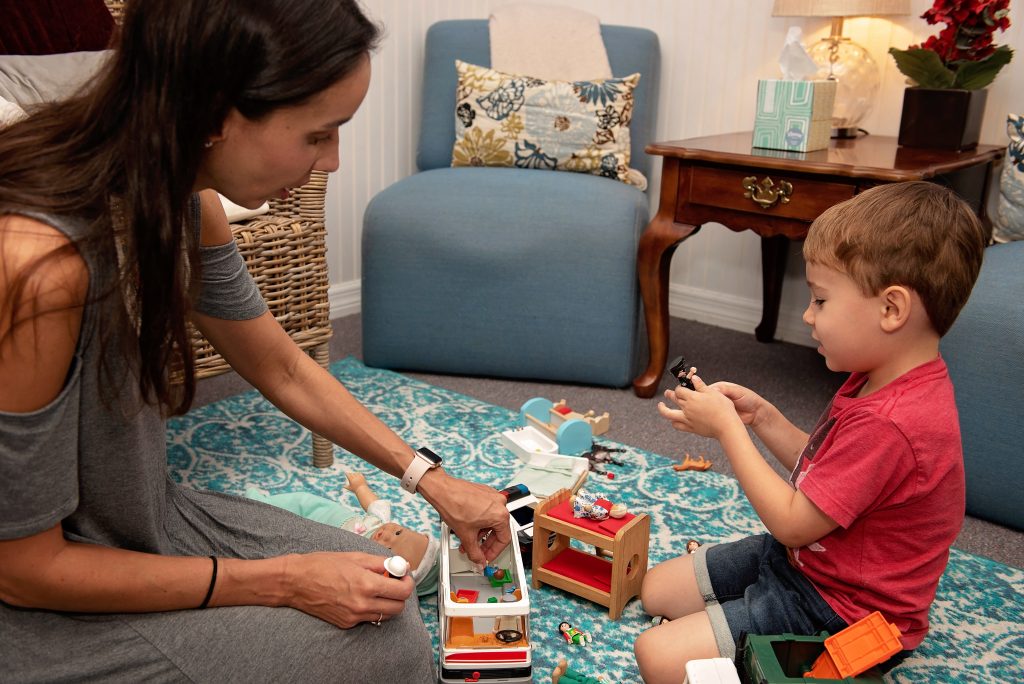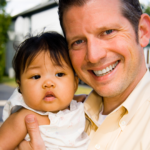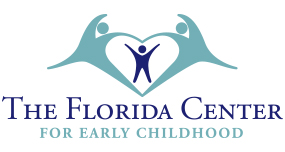Infant and Early Childhood Mental Health

The Florida Center for Early Childhood offers Infant and Early Childhood mental health services that help children regulate and express emotions, form close and secure relationships and explore the environment and learn. Developing these abilities is critical to healthy social and emotional development and can prevent negative outcomes later in life.
Our Infant and Early Childhood mental health services provide diagnostic and therapeutic assistance to children, from birth through fifth grade, to help overcome and/or heal from the following circumstances:
- Adverse childhood experiences
- Aggression
- Attachment difficulties
- Challenges in childcare or school
- Defiance
- Depression
- Exposure to a traumatic event
- Fear or anxiety
- Fussiness or difficulty calming down
- Grief/loss
- Hyperactivity
- Parent/child relationship challenges
Our therapists cater to the unique developmental needs of each young client with exclusively designed interventions for the infant/child and their family. Florida Center therapists use the following evidence-based practices.
- Prenatal/Postnatal Mental Health Therapy
- Adoption Competent Therapy
- Circle of Security Parenting
- Child-Centered Play Therapy
- Child-Parent Psychotherapy
- Child-Parent Relationship Therapy
- Trust-Based Relational Intervention
For more information, email intake@thefloridacenter.org or call 941-371-8820 x 1916.
Notice of Privacy Practices
Client Rights and Responsibilities
Prenatal and Postpartum Counseling
 The Florida Center for Early Childhood offers prenatal and postpartum counseling services provided by trained clinicians. Many women experience mood problems during pregnancy and after birth, and sometimes these symptoms can impact daily functioning in a significant way. Prenatal and postpartum mood problems are treatable with the help of a professional. We want new mothers to know they are not alone during this time.
The Florida Center for Early Childhood offers prenatal and postpartum counseling services provided by trained clinicians. Many women experience mood problems during pregnancy and after birth, and sometimes these symptoms can impact daily functioning in a significant way. Prenatal and postpartum mood problems are treatable with the help of a professional. We want new mothers to know they are not alone during this time.
Symptoms of prenatal and postpartum mood problems differ for everyone and might include:
• Anger or irritability
• Lack of interest in the baby
• Crying and sadness
• Loss of interest or pleasure in things you used to enjoy
• Thoughts of harming yourself or the baby
• Constant worry
• Racing thoughts
• Intrusive thoughts
• Hypervigilance in protecting the infant
• Disturbances in sleep and appetite
If you are suffering from any of these symptoms or others, contact us, and we will connect you with an experienced clinician.
For more information, email intake@thefloridacenter.org or call 941-371-8820 x 1916.
Attachment and Bonding Study
 An attachment and bonding study is a comprehensive evaluation to assess the quality of attachment and bonding between a child and a caregiver. A licensed clinician with specialized training in infant and early childhood mental health conducts this evaluation. The process typically involves several appointments, to include individual meetings with the caregiver(s) to gather pertinent information and history, and a semi-structured observation of the caregiver and child together. External documentation, such as previous evaluations and child welfare documents, is often requested to help the clinician obtain a well-rounded understanding of the child and family. Upon completion of the assessment process, the clinician completes a typed report with a description of findings and recommendations.
An attachment and bonding study is a comprehensive evaluation to assess the quality of attachment and bonding between a child and a caregiver. A licensed clinician with specialized training in infant and early childhood mental health conducts this evaluation. The process typically involves several appointments, to include individual meetings with the caregiver(s) to gather pertinent information and history, and a semi-structured observation of the caregiver and child together. External documentation, such as previous evaluations and child welfare documents, is often requested to help the clinician obtain a well-rounded understanding of the child and family. Upon completion of the assessment process, the clinician completes a typed report with a description of findings and recommendations.
